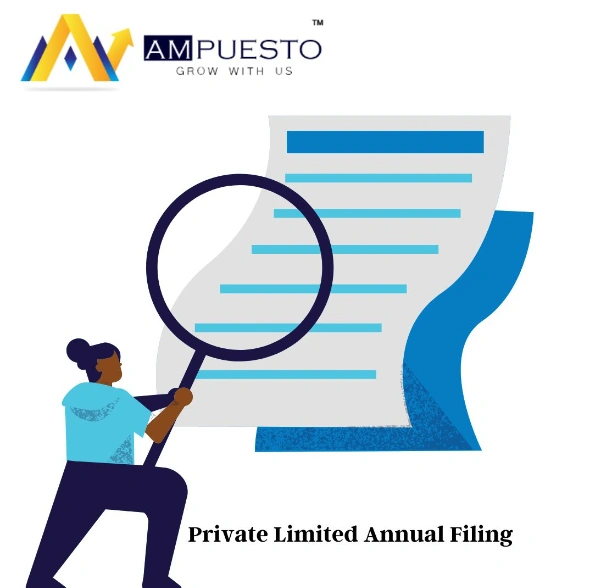Introduction:
Private Limited companies are one of the most common business structures worldwide. They offer limited liability protection to their owners, allowing them to separate personal and business assets. However, operating a private limited company comes with certain compliance requirements. One such requirement is the annual filing, which ensures that the company meets its legal obligations and provides transparency to stakeholders. In this article, we will demystify the process of private limited annual filing and provide you with an essential checklist to navigate through it smoothly.
1. Understanding Private Limited Annual Filing
Private Limited annual filing refers to the submission of various documents, financial statements, and compliance-related forms to the regulatory authorities, such as the Companies House, within the prescribed timeframes. It provides an overview of the company’s financial health, operations, and governance for the preceding financial year.
2. Importance of Private Limited Annual Filing
Private Limited annual filing holds significant importance for both the company and its stakeholders. It ensures compliance with legal requirements, maintains transparency, and establishes credibility in the business ecosystem. Failure to comply with annual filing obligations can result in penalties, legal consequences, and even the striking off of the company from the register.
3. Preparing for Annual Filing
Before initiating the annual filing process, it’s essential to gather all the necessary information and documents. Here are some key steps to follow:
- Gathering Financial Statements
Collect financial statements, including the balance sheet, profit and loss statement, and cash flow statement. These statements should accurately represent the company’s financial position and performance for the preceding financial year.
- Updating Statutory Registers
Ensure that all statutory registers, such as the register of members, register of directors, and register of charges, are up to date. Any changes in the company’s structure, shareholding, or directorship should be duly recorded.
- Reviewing Corporate Governance
Review the company’s corporate governance practices, including board meetings, resolutions, and compliance with applicable laws and regulations. Address any issues or discrepancies before filing the annual report.
4. Forms and Deadlines
Private Limited companies need to file two main forms for annual filing:
- Form AOC-4
Form AOC-4 is used for filing the financial statements of the company. It includes details of the balance sheet, profit and loss statement, auditor’s report, and other relevant financial information. The deadline for filing Form AOC-4 is typically 30 days from the date of the Annual General Meeting (AGM).
- Form MGT-7
Form MGT-7 contains information about the company’s shareholders, directors, and other corporate details. It also includes the annual return of the company. The deadline for filing Form MGT-7 is usually 60 days from the date of the AGM.
5. Appointment of Auditor
Private Limited companies are required to appoint an auditor to conduct an independent audit of their financial statements. The auditor’s role is to examine the financial records and express an opinion on their accuracy and compliance with applicable accounting standards. The auditor’s appointment should be done within 30 days from the date of incorporation.
6. Filing Fees and Penalties
Private Limited annual filing involves certain fees payable to the regulatory authorities. The amount of fees depends on the authorized capital and the late filing, if any. It’s crucial to adhere to the filing deadlines to avoid penalties, which can range from monetary fines to disqualification of directors.
7. Audited Financial Statements
Private Limited companies must prepare audited financial statements. The financial statements should comply with the applicable accounting standards and provide a true and fair view of the company’s financial position and performance. These statements are a critical component of the annual filing process.
8. Annual General Meeting (AGM)
An Annual General Meeting (AGM) is a mandatory meeting held by a Private Limited company once a year. During the AGM, the company’s shareholders discuss matters related to the company’s operations, financial statements, and other significant issues. The AGM should be held within six months from the end of the financial year.
9. Directors’ Report
Private Limited companies need to prepare a Directors’ Report as part of their annual filing. The Directors’ Report provides an overview of the company’s operations, achievements, future plans, and other relevant information. It should be prepared in compliance with the Companies Act and other applicable regulations.
10. Compliance Certificates
Certain companies are required to obtain compliance certificates from professionals, such as company secretaries or chartered accountants. These certificates validate the company’s compliance with legal and regulatory requirements. The compliance certificates should be obtained and submitted along with the annual filing forms.
11. Digital Signatures
Private Limited annual filing requires the use of digital signatures for authentication and verification purposes. Digital signatures ensure the integrity and security of the filed documents. It’s important to obtain the necessary digital signatures and comply with the prescribed procedures.
12. Filing Process
The filing process involves submitting the required forms and documents electronically through the designated online portals. Companies should ensure accuracy and completeness of the information provided. It’s advisable to seek professional assistance or use specialized software for smooth filing.
13. Post-Filing Requirements
After filing the annual report, it’s essential to retain a copy of the filed documents and maintain them for the required period. It’s also crucial to update the company’s records and registers to reflect the filing status accurately.
14. Common Mistakes to Avoid
- Missing filing deadlines
- Inaccurate or incomplete financial statements
- Failure to update statutory registers
- Non-compliance with corporate governance requirements
- Ignoring penalties and late filing fees
Conclusion
Private Limited annual filing is a crucial process that ensures compliance, transparency, and accountability for companies. By following the essential checklist provided in this article, companies can navigate through the annual filing requirements successfully. Remember to stay updated with the latest regulations, seek professional guidance if needed, and prioritize timely filing to avoid penalties and legal consequences.









